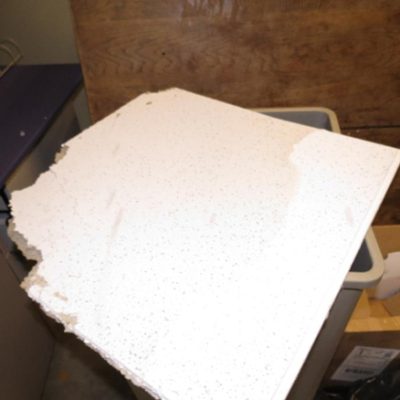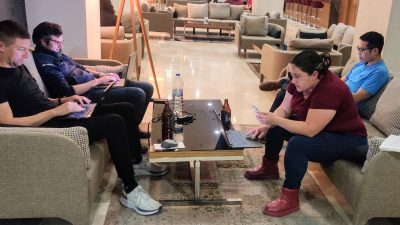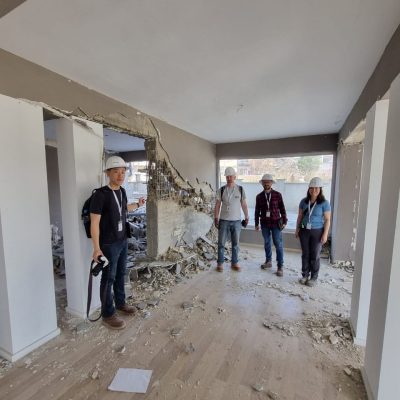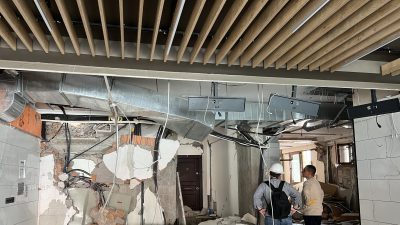Final Thoughts from Degenkolb Engineers Team 2
As our time in Turkey has come to an end, we wanted to take some time to reflect on all that we have seen. We have noticed the impact that nonstructural damage can have on building resilience and ultimately community resilience. Many of the hospitals we visited had only nonstructural damage yet were scheduled to be demolished. This is an unfortunate consequence, and it is hard for us as structural engineers to accept this reality because we are trained to focus on structural performance, yet all the evidence we have seen suggests that achieving excellent nonstructural performance is the more demanding, and arguably more consequential, endeavor. With that said, structural damage was far from uncommon; the structural failures we saw reminds us of the importance of proper detailing, especially at connections and joints. For concrete construction, proper detailing is paramount to its seismic performance and any attempts to deviate from proper detailing only make an inherently brittle material even more so. In many cases, inadequate detailing was the result of the building code not mandating it for its time, but in many other cases the design was simply not followed, which is arguably the more egregious offense.
All over the country of Turkey, buildings are built with similar materials and construction practices. However, some cities experience more damage than others which comes down to soil conditions, sloping sites, and seismic forces exceeding those prescribed by code design spectra (in some cases, twice that of the code design). Most importantly, the country of Turkey has a long road ahead to rebuild the homes and communities that were destroyed by these earthquakes. Many citizens are living in tents adjacent to the rubble of the places they used to call home and they will be profoundly impacted by this earthquake for many years to come. We must investigate opportunities to support Turkey as it rebuilds and to use our structural engineering knowledge to improve future construction. We must not let the lessons learned from Turkey, or any major earthquake, go to waste; as the adage goes, “The smart person learns from their own mistakes, but the wise person learns from the mistakes of others.” We must strive to be wise moving forward, because while we reap the benefits of having a modern building code with better construction practices, it would be difficult to suggest that our communities are resilient. There is always room for improvement, and we encourage the reader to use what we have learned from this reconnaissance trip to champion and advocate for better building performance in all the ways that it can be measured.
Final Thoughts from Baris Lostuvali
As a construction professional who was educated in Turkey and has worked in the San Francisco Bay Area most of my adult life, I was full of emotions, thoughts, and a heavy heart when I was a part of Degenkolb’s reconnaissance team. The scenes of the 2023 Kahramanmaraş earthquake zone were surreal. The destruction to the lives and buildings was unimaginable as nature tested our built environment to the point of failure in many cases. In the aftermath, we need to study and learn from each and every failed building type (hospitals, schools, residences, etc.) and with all building systems (structural and non-structural) and get ready for the next one, either in Istanbul or the San Francisco Bay Area (The New York Times article, “Turkey’s Earthquake Zone Is a Lot Like California’s. Here’s What That Means” is a great reference).
The 2023 Kahramanmaraş earthquake reminded us again of the devastation of earthquakes and the importance of “functional recovery”, or how quickly a building will recover its function after a natural disaster. Eleven cities and many communities that were hit by the earthquake lost many basic services— schools, hospitals, grocery stores, religious centers and more – and their absence is delaying recovery, which permanently alters the fabric of a community as over one million people needed to relocate. As we evaluate the impacts of the earthquake, I hope owners, developers, agencies, and policy makers lead the next generation building code with “functional recovery” in mind, so our communities can recover faster.
Final Thoughts from Rafael Alaluf
I have visited many major earthquake sites during my 30+ years of professional life (Loma Prieta/California, Kocaeli/Turkey, L’Aquila/Italy, Maule/Chile, and Christchurch/New Zealand to name a few). However, the earthquake that occurred on February 6th in Kahramanmaraş was one of the most devastating in terms of loss of life, property, and heritage. Unfortunately, the reasons for these losses were the same as always: poor construction quality and materials, lack of engineering, inadequate detailing, lack of inspection, and corruption. The most disappointing takeaway for me was the ignorance among government officials, authorities, building owners, the general public, and even engineers. Though Turkey had experienced many major earthquakes before, appropriate precautionary measures were never taken. Earthquakes were treated as once-in-a-lifetime events with low odds of ever happening again. I have been trying for years to raise awareness among my clients, my friends, my relatives, even my immediate family about the risks they face in their own homes and workplaces. It has been a continuous struggle, often filled with disappointment. When an event like this occurs, I feel angry because of people’s inability to listen and tendency to easily forget; guilty because we engineers never emphasize the risks enough, and sad because such disasters put an end to communities, cultures, lives, and heritage. Nevertheless, as we rebuild that part of the country, we should never forget what happened on the early morning of February 6th. We need to start building more resilient cities by beginning with our own homes and workplaces. Earthquakes are inevitable, and will continue to destroy cities, communities, societies, and human lives, if we do not take the appropriate actions immediately!
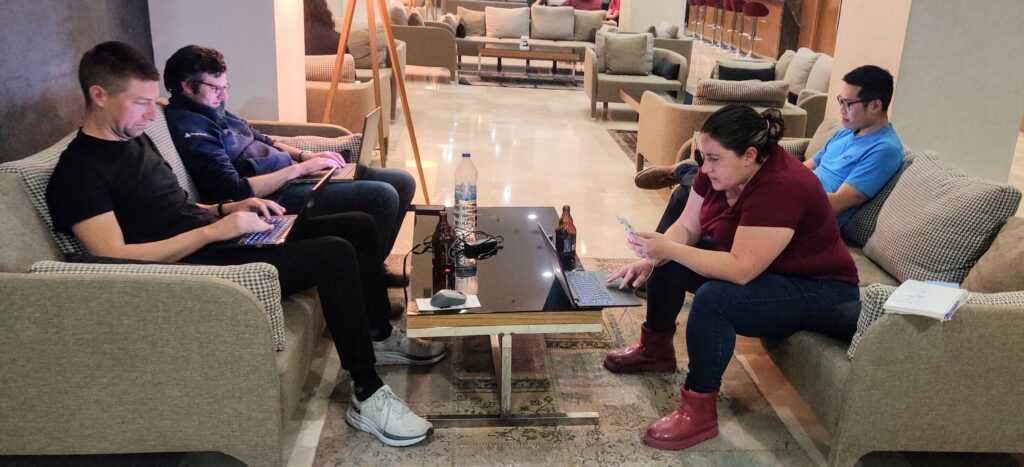
Team 2 hard at work to write each day’s blog post, which was a common occurrence after a long day of reconnaissance work. Adult beverages may have been consumed to help us overcome writer’s block.
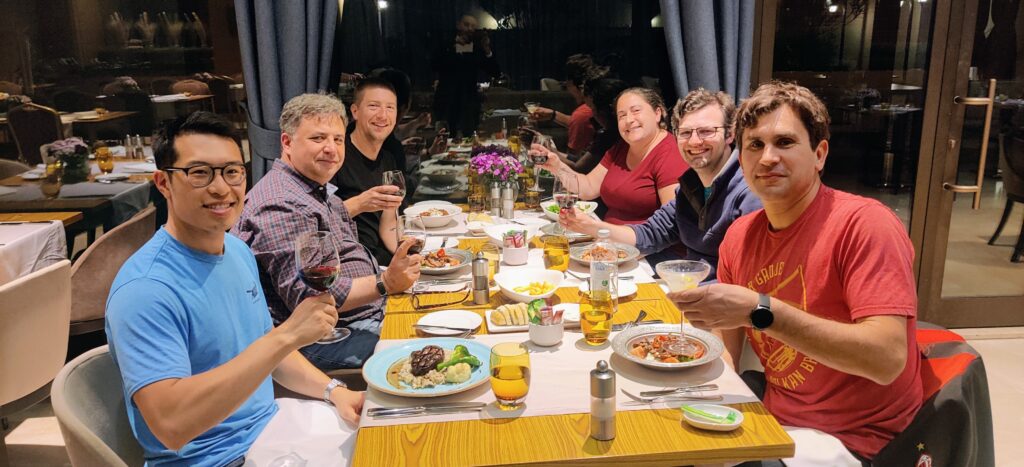
Team 2 salutes you, the reader, for lending us your time and allowing us to share our thoughts with you. Teşekkürler!
